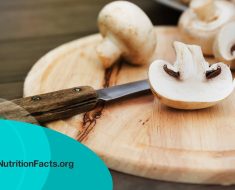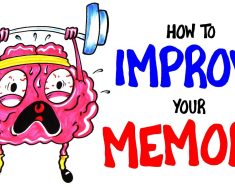Should You Take Vitamin Supplements

Vitamin A It’s crucial for our bodies, and it does a lot more than help our peepers. Vitamin A supports a healthy immune system, reproductive system, cell health, and vision. Should you take vitamin supplements? Because vitamin A helps produce healthy cells, it also affects our vital organs like the heart and lungs. Vitamin A comes in two forms. First, there is preformed vitamin A like retinol.
These carotenoids directly provide our bodies with vitamin A and are found in animal sources like dairy, fish, and meat — especially the liver. The other type comes in the form of provitamin A carotenoids like beta-carotene. Should you take vitamin supplements? This is found in darkly colored fruits and vegetables like carrots, broccoli, cantaloupe, and squash. Once we eat those fruits and vegetables, our bodies convert the preformed vitamin A into vitamin A that our tissues can use. Most multivitamins contain vitamin A, and women should aim for about 770 micrograms of vitamin A per day.
Vitamin E We are constantly exposed to dangerous free radicals from air pollution, ultraviolet radiation, or just walking through a cloud of cigarette smoke down the street. That’s why it’s so critical to have a steady supply of healing antioxidants to keep our cells from mutating and causing chronic disease. That’s where Vitamin E comes in. We can get vitamin E from our diets, as well as supplements. Foods with healthy fats like nuts, seeds, and green leafy vegetables are high in Vitamin E.
While vitamin E is available in supplements, we have to be careful to avoid high doses — especially if you’re taking blood thinners.
Aim to get this vitamin from your diet or a multivitamin. Folate is in the B vitamin group and is crucial for everyone, not just the pregnant ladies. It can assist in decreasing heart disease, and increase our cognitive abilities and cardiovascular health. Because folate is vital for the health of unborn babies, all women considering becoming pregnant need to ensure that they’re taking in enough of it every day.
Some of the best sources of folate come in the form of spinach, asparagus, and Brussels sprouts, not to mention, nuts, beans, dairy products, meat, seafood, and grains.
If you know you’re not getting a ton of these in your diet, folic acid — the synthetic form of folate — is also available in vitamin B supplements and in multivitamins. Vitamin C Ah, cold and flu season. The time when Vitamin C is flying off the shelves. While those packets of Emergen-C and others like it may not prevent that cold, it may at least shorten it.
It’s also vital to forming collagen — the stuff that keeps your skin tight and your bones strong. Like vitamin E, vitamin C also contains powerful antioxidants. Unlike other animals, we humans can’t make vitamin C, so we need to take it in every day. Oranges are of course great sources of vitamin C, but so are other citrus fruits like grapefruits and lemons, and vegetables like bell peppers and broccoli. To get the most vitamin C bang for your buck, enjoy your fruits and veggies raw.
Because this vitamin is water-soluble, heating and cooking your food can decrease the number of vitamins that your body can absorb. Citrus smoothie for breakfast? Yes, please! Vitamin B6 Feeling blue or just off? Make sure you’re getting enough vitamin B6.
Vitamin B6 helps the body make serotonin and norepinephrine, which are chemicals that help the brain send signals. Not having enough vitamin B6 can lead to problems in the nerves, skin, and circulation. The jury is still out, but some research has linked taking a vitamin B6 supplement to improved PMS symptoms.
According to the Mayo Clinic, mild vitamin B6 deficiency is common, so make sure you’re getting enough every day. It’s found in legumes, vegetables, milk, cheese, eggs, and meat, but it’s highest in fish, beef liver, organ meats, and starchy vegetables.
Of course, if the sounds of organ meats make you queasy, there are always vitamin B supplements. Vitamin B12 is usually found in animal products, Vitamin B12 helps our bodies produce new red blood cells. Our bodies can store up to a couple of years’ worth of vitamin B12 in our livers, so not everyone needs to take this every day. One group that should look into vitamin B12 supplements is vegetarians.
Vitamin B12 binds to the proteins in our food and can be found in fish, shellfish, meat, eggs, and dairy products.
This is why it can be tricky for strict vegetarians and vegans to get enough of this vitamin. It’s usually not found in plant foods, but now some cereals have been fortified with vitamin B12. Vitamin D Our bodies need vitamin D for healthy bone growth. Vitamin D is usually added to calcium supplements because it helps our bodies absorb calcium. A vitamin D deficiency will lead to weak, brittle bones and pain.
Unlike the other vitamins in this list, vitamin D isn’t so easy to get from food. We can take in vitamin D from supplements or our bodies can make it when we’re exposed to sunlight. All you need is 10 minutes outdoors each day to get your fix. Vitamin D can be found in some fatty fish like salmon or tuna, as well as beef liver, cheese, and egg yolks. But why argue with a prescription of daily sunshine?
Did calcium get milk? Calcium is the most abundant mineral in our bodies and has always been famous for protecting our teeth and bones, but its benefits go far beyond our skeletons.
Calcium has been linked to protecting against cancer, diabetes, and high blood pressure. It also helps our bodies’ nerves and muscles work properly. Getting enough calcium is especially important for kids, as they won’t reach their full adult height if they’re deficient.
Our blood requires a certain amount of calcium in it, so when it’s low, our blood just pulls it from our bones.
This keeps our blood safe and working but will weaken our bones. For this reason, it’s important to eat calcium-rich foods daily, especially during the teenage years. Of course, dairy products like yogurt, cheese, and milk are good sources, but so are leafy green vegetables, fish, and soy products. Magnesium Magnesium is a mineral that we can absorb from food, supplements, or even some medications.
Our bodies need enough magnesium to keep our muscles and nerves working. Magnesium also helps with controlling blood sugar levels and blood pressure. It’s relatively easy to take in magnesium from our diets. Some foods that are rich in magnesium include green leafy vegetables, nuts, seeds, and whole grains. Whole wheat bread should be high in magnesium, while other types like white bread have been stripped of most of their magnesium content.
We can also get magnesium from supplements. Adults should aim for about 270 to 400 milligrams per day. If you decide to try the supplement, do yourself — and your family — a favor and take it with food to avoid diarrhea.
Iron Our bodies need to receive iron every day to be able to make enough new red blood cells. Our red blood cells are responsible for bringing fresh oxygen throughout the body.
When we don’t have enough iron, we can develop anemia, not to mention a loss of energy, shortness of breath, and even learning problems. To make sure you’re eating enough iron, look for animal products like lean red meat, chicken, turkey, and fish. Women should aim for 10 to 15 milligrams of iron per day. If you and your doctor decide it’s time to try an iron supplement, make sure to take it on an empty stomach. So, do we need vitamins?
Our experts agree that the best source of vitamins in our diet. Whole, fresh, unprocessed foods provide the vitamins our bodies crave. Board-certified rehabilitation specialist Dr. Scott Schreiber focuses on obtaining vitamins from whole foods. He says, “If it grows from the ground, the way nature intended it, vitamins and minerals occur in their most natural states and can be absorbed the easiest. ” Registered dietitian Emily Braaten also recommends trying to obtain as many vitamins from our diets as possible. Should you take vitamin supplements? She told us, “While a multivitamin may be able to fill the gap, it’s not absolutely necessary to rely on supplements to meet our needs.
Simply shifting our eating pattern to include the recommended servings of fruits and vegetables can cover most of the aforementioned [vitamins].” If you do decide to jump on the vitamin train, it’s important to always talk with your healthcare provider first. Most vitamin supplements contain 100 percent of the recommended daily amount, so if you’re already consuming a healthy diet of fruits and vegetables throughout the day, you would be taking in way more than the National Institutes of Health recommends. Should you take vitamin supplements? then, Unfortunately, when it comes to vitamins, you really can have too much of a good thing. “What is this?!” “Water!” “It’s horrible! ” Thanks for watching! Click The List icon to subscribe to our YouTube channel. Plus check out all this cool stuff we know you’ll love, too!.






